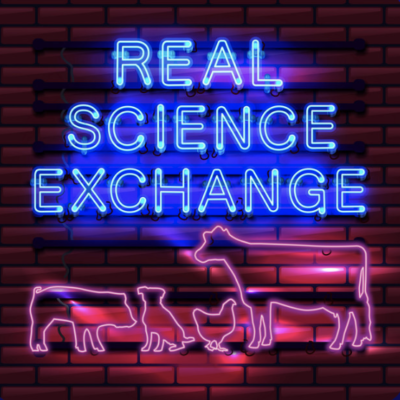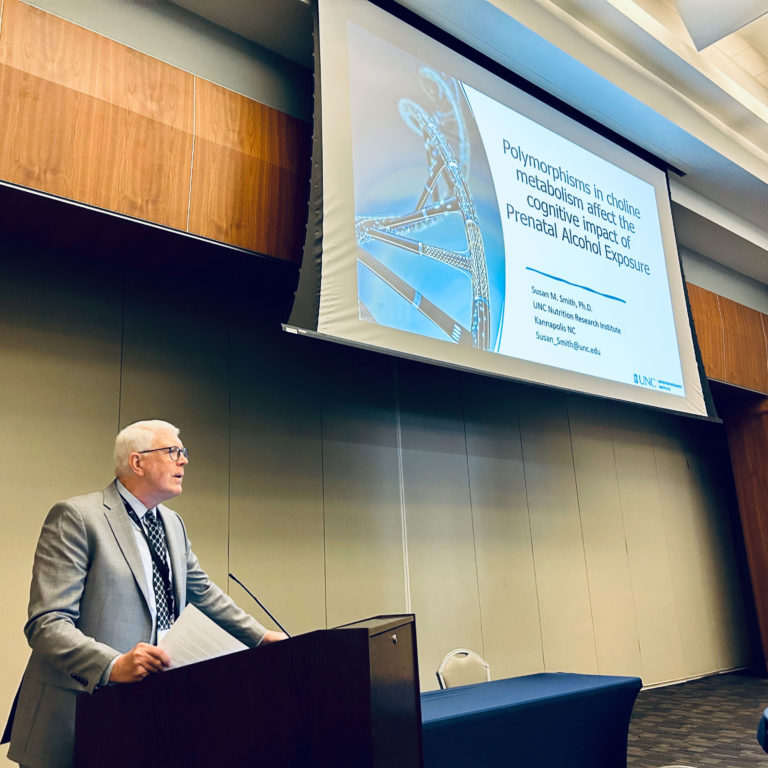First established as an essential nutrient in 1998, choline is a nutrient with critical roles in the health and development of the brain, liver, and more. The past 25 years have seen significant advances in the choline field, however, the question remains: What’s next?
To address this, more than 80 researchers from around the world convened in Kannapolis, NC, last month for the UNC Nutrition Research Institute’s inaugural Future Directions in Choline symposium. Across two-and-a-half days, 16 experts delivered talks on various aspects of choline’s role from pregnancy to Alzheimer’s disease. In total, 19 presentations assessed current choline science in human nutrition and pinpointed essential areas for further investigation to better grasp its impact on our health.
Attendees, who represented the spectrum of the science from doctoral students to tenured professors and industry researchers, had the opportunity to interact with leading minds in choline nutrition, engage in small-group discussions with prominent scientists outlining future research and public communication strategies, tour the UNC Nutrition Research Institute, and significantly, hear from and honor the career of Steven H. Zeisel, a trailblazer in choline nutrition.
Among the distinguished speakers at this symposium were:
- Julia Maeve Bonner, PhD, a principal scientist in the neurodegenerative diseases cluster at Sanofi. She lectured on choline supplementation and its beneficial effects on Alzheimer’s. Her research has discovered that many groups of people at risk for Alzheimer’s disease their symptomology can worsen with low choline intake.
- Jonathan Bortz, MD, vice president at Balchem Corporation, who presented TMAO and Choline: A Mechanistic Perspective. TMAO, a compound our bodies make when we eat foods of animal origin, has been linked to cardiovascular disease and, thus, has been associated with choline, which is in highest concentrations in animal foods. Bortz discussed the mechanisms of choline biochemistry and revealed that multiple epidemiological studies are not linking choline intake and TMAO increase.
- Rima Obeid, PhD, a professor at Saarland University Hospital in Germany. She spoke on choline and pregnancy outcomes, focusing on brain and liver. Obeid’s research found that lower maternal choline intake was associated with a 36 percent higher risk of neural tube defects. Moreover, she discussed data on low choline intake in adult life and fatty liver.
- Steven Zeisel, MD, PhD, founding director of the NRI who is credited with the discovery of choline’s role as an essential nutrient. Zeisel’s discourse examined choline dietary reference intakes (DRI), which include Recommended Dietary Allowance (RDA) and Adequate Intake (AI), and determined that the DRI needs to be reevaluated in light of new and ongoing research.
In addition to Zeisel and current director Steve Hursting, who opened and closed the event, NRI choline research was presented by Katie Meyer, Evan Paules, Susan Smith, and Isis Trujillo-Gonzalez. (See the full list of all symposium speakers here.)
When the varied views of choline research had all been presented, attendees worked in small groups to arrive at recommendations for moving the science forward. Because choline has been proven to be essential to many vital functions, in particular during pregnancy and lactation, attendees concurred that future work should focus on understanding individual variation in choline requirements so recommendations can be more personalized. Chief among those was i) the importance of choline during pregnancy and lactation is clear, and women need to increase their choline intake during these periods. ii) Choline requirements are highly personalized and this needs to be considered when reframing choline intake recommendations.
The symposium was co-presented by the NRI and Balchem Corporation with sponsorship from the North Carolina Biotechnology Center.
 The Future Directions in Choline symposium was also featured on the Real Science Exchange podcast.
The Future Directions in Choline symposium was also featured on the Real Science Exchange podcast.
Balchem Real Science Exchange isn’t just any old boring podcast. You’ll get to know top researchers like you’ve never known them before. Go behind the scenes and hear the conversations that take place over a few drinks with friends. Join us as we discuss the hot topics in animal science and share a range of new ideas.
Listen now.











